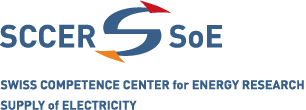This project aims at developing a theoretical and methodological framework for fracture mechanics, which will in particular allow for the numerical simulation of large-scale problems on recent and upcoming parallel architectures. It will exploit phase-field models as novel approaches for the representation of crack interfaces. In this project, we will use modern discretization approaches such as Isogemetric analysis (IGA) and NURBS based ansatz spaces, for which we will develop efficient adaptive techniques. Moreover, for the solution of the arising (non-)linear systems, robust preconditioners based on multilevel methods will be derived and implemented. These approaches combine the flexibility of traditional refinement techniques with a patchwise view on the discretisation, thereby allowing for the design of efficient approaches on massively parallel architectures, which profit from simple and easily maintainable data structures. In addition to the new phase-field based approach for fracture, we will also extend our new framework in order to deal with contact and frictional effects along the larger interior crack interfaces. |
| Research Partners |
Institute of Computational Science at the University of Lugano, Siemens, DFG Schwerpunktprogramm 1748: Reliable Simulation Techniques in Solid Mechanics. Development of Non-standard Discretisation Methods, Mechanical and Mathematical Analysis. |
